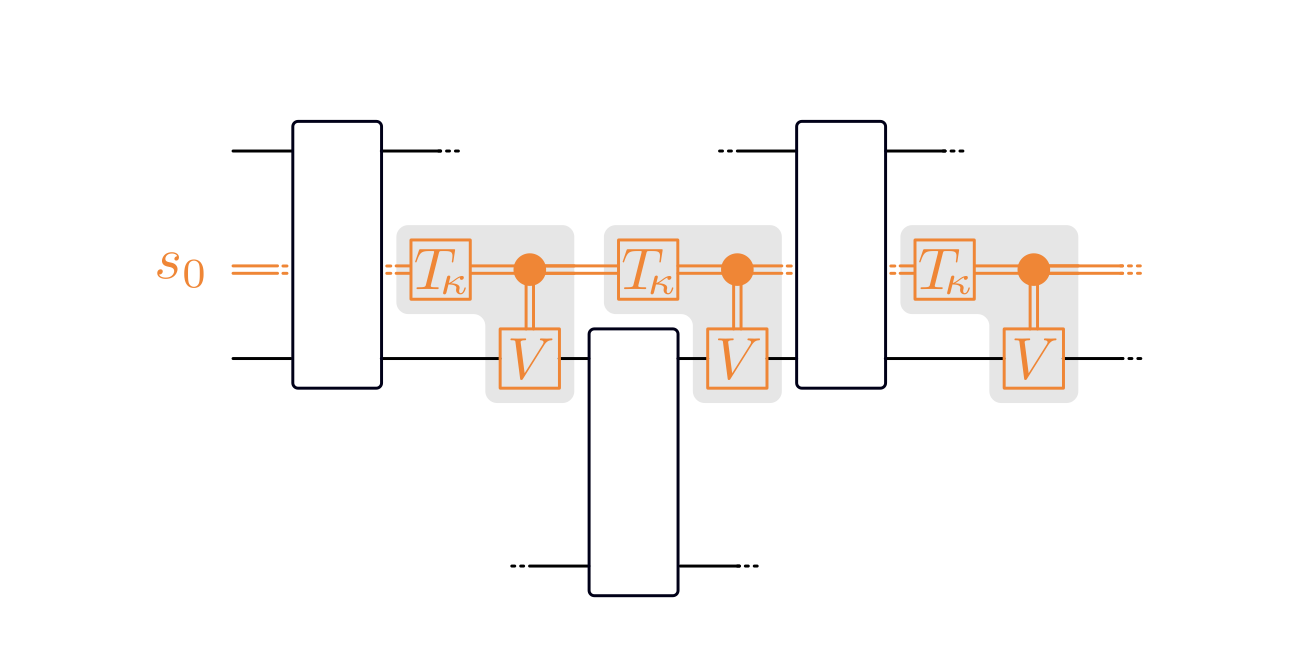
Ability of error correlations to improve the performance of variational quantum algorithms
J. Kattemölle and G. Burkard
Phys. Rev. A 107, 042426 (2023)
Selected as Editor's Suggestion.
The quantum approximate optimization algorithm (QAOA) has the potential of providing a useful quantum advantage on noisy intermediate-scale quantum (NISQ) devices. The effects of uncorrelated noise on variational quantum algorithms such as QAOA have been studied intensively. Recent experimental results, however, show that the errors impacting NISQ devices are significantly correlated. We introduce a model for both spatially and temporally (non-Markovian) correlated errors based on classical environmental fluctuators. The model allows for the independent variation of the marginalized spacetime-local error probability and the correlation strength. Using this model, we study the effects of correlated stochastic noise on QAOA. We find evidence that the performance of QAOA improves as the correlation time or correlation length of the noise is increased at fixed local error probabilities. This shows that noise correlations in themselves need not be detrimental for NISQ algorithms such as QAOA.
Please find out more.
